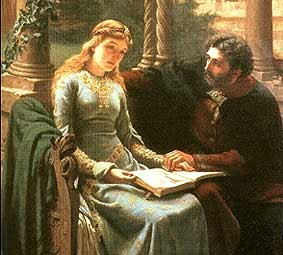I used to think it was outrageous that two people saying something simultaneously should be grounds for a jinx. Whenever somebody jinxed me, I would be all, “What the hell, man? We said the same thing because we’re on the same page here. Why am I being punished with a fucking curse?”
I now realize that jinxing was invented because we need a game to break the tension inherent in this situation. Imagine saying “I’m thirsty!” in unison with your friend, except neither of you has the power to jinx. You would both just kind of stand there and awkwardly laugh due to how stupid your lives have suddenly become. There’s actually no graceful way out of this situation. Jinxing may sound childish, but it’s a choice between that or the two of you spontaneously making out.
Where I draw the line is the idea that now I somehow owe my friend a Coke, because I don’t. It’s like, “You’ve just pinched me and poked me—I’ve been publicly humiliated for absolutely no reason. Under no circumstances am I going to take you out for Cokes.” It’s such an insane ritual, too, because nobody in the history of jinxes has actually collected on their Coke. I probably owe about $3,000 worth of Cokes right now, and there’s no need for it. How in the hell did Coke even become involved with this bullshit?
Researching frivolous subjects on Wikipedia is a hobby of mine, so I consulted their (largely retarded) jinxing article. I didn’t find anything close to resembling an answer, but I did come across the following intriguing excerpt:
A variation experienced in Southern Massachusetts in the 1960s may not be strictly considered a “jinx,” but when two people say the same thing in unison (unplanned!), they must hook little fingers and say the following dialog: “What goes up the chimney?” “Smoke.” “May your wish and my wish never be broke!”
That’s probably the cutest thing I’ve ever read. I imagine two grown men hooking their pinkies together and excitedly breaking into this little exchange. To me this is way more positive than demanding a Coke from your friend and beating the shit out of him. It’s a chance to share a wish! The next time an acquaintance and I speak in unison, I’m going to begin reciting this routine, because it’s the perfect way to avoid any lingering awkwardness. Hopefully all my acquaintances are familiar with proper jinxing protocol from 1960s Southern Massachusetts, or else I’m going to look like a real asshole.
When it comes to a proper pinch and punch, my friends and I have begun a war of the months. On the first day of the month, all hell breaks loose. "Pinch, punch, first of the month, no backs," a couple of fresh bruises later and we're magically still best friends forever. The losing party, which usually consists of me, can retaliate with "a kick and a flick for being so quick." This is the greatest excuse you could ever have to beat the living shit out of that one friend who talks just a little too much or is just a little too happy on Monday morning.
Hypothetical situation: You both shout "Pinch punch, first of the month, no backs! Jinx!" Now what? Do you both pinch and punch and poke one another followed by a mutual Coke binge nursing your matching black eyes? When does the cycle end?

